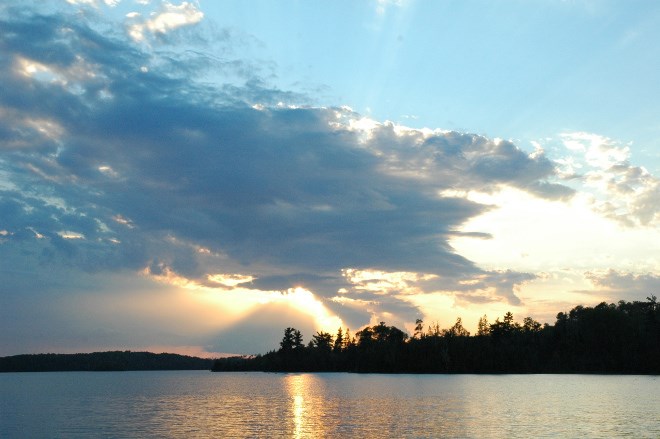The new provincial budget has a "contradiction" between words and policies, said Claire Malcolmson, executive director of Rescue Lake Simcoe Coalition.
Spending on bricks and mortar is up for schools and hospitals – but the operational sides of education, health care and social services are facing cuts.
And at the very time that climate change is coming to the fore, the budget has slashed funding to Ministry of Environment and Climate Change by nearly 36 per cent, comparing 2018-19 actuals and the allocation for 2019-2020.
This is even while presenting a government vision that promises to protect the province’s “pristine beauty” and to strike “the right balance between a healthy environment and a healthy economy by protecting Ontario’s natural resources and reducing greenhouse gas emissions without imposing an ineffective regressive carbon tax on hard-working Ontario individuals and families.”
In fact, the ministry has been renamed, Ministry of the Environment, Conservation and Parks.
For Malcolmson, a long-time environmental advocate, the Doug Ford budget was a disappointment on an environmental level.
“The province’s words here are not matched by action or policy changes or funding,” Malcolmson said, pointing to the more than 35 per cent cut to the ministry, which is also responsible for dealing with climate-change issues.
“How do you back up the vision of preserving the ‘pristine beauty’ of Ontario?” she asked. “You can’t swim in beauty. You swim in clean water.”
The budget talks about a "Made-in-Ontario” plan, but details are sparse. Proposed are an end to cap and trade, an online reporting platform that allows residents to report pollution complaints, a redesign of emissions testing for heavy trucks, and a $400 million emissions reduction fund that would reward the private sector for embracing technology that reduces carbon emissions.
The government will also undertake a Provincial Climate Change Impact Assessment to gauge vulnerability to severe weather and flooding – and a province-wide anti-litter day that it suggests will be youth-driven.
“We really need to see a much more inspiring picture,” said Malcolmson. “Let’s not dump it on youth. I hope that there’s more.”
She added, “It is extremely disappointing that the province is spending $30 million to fight carbon pricing in court. That doesn’t show a commitment to addressing climate change.”
Malcolmson pointed out the ministry has not only been co-ordinating efforts to address climate change, but also the Lake Simcoe Protection Plan. The cuts to the ministry budget and the lack of specific mention of Lake Simcoe in the budget is worrisome.
“I’m very concerned,” she said.
The cuts, combined with proposed changes to the Conservation Authorities Act and the definition of wetlands and streams, and the “Open for Business” slogan of the Conservative government also leave her wondering about the future of environmental regulation in Ontario.
“It’s not going to work if the province is changing regulations to basically promote urban sprawl, and if they’re limiting the funding to support remediation programs... I would like to hear how we’re going to protect Lake Simcoe. Saving Lake Simcoe does not come free," Malcolmson said.
Environment is not the only ministry facing drastic cuts in the year ahead.
Ministry of Natural Resources and Forestry is being cut by $161.7 million, or nearly 20 per cent – and The Ministry of Indigenous Affairs will see its budget slashed by about 50 per cent, although the previous two years did include a number of one-time settlements of claims with First Nations.
“The Georgina Island First Nation has been under a ‘boil water’ advisor for years. They are at the forefront of the degraded water quality issue," Malcolmson said, noting how the cuts will impact that issue has yet to be seen.
Georgina Island First Nations, when contacted, indicated there are "concerns" but are waiting for more details before issuing a statement.

